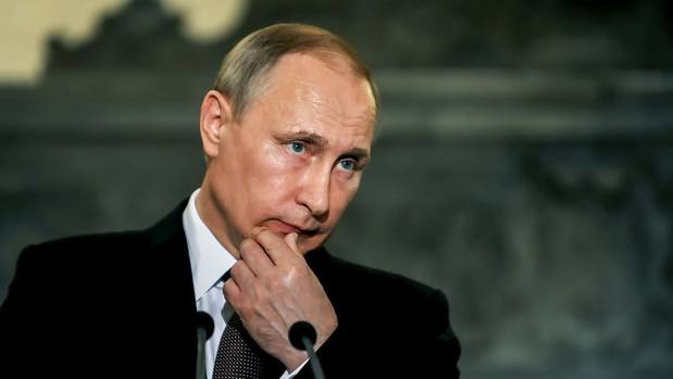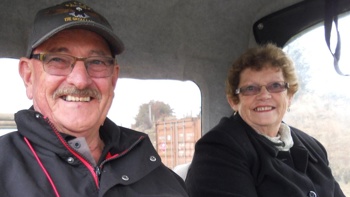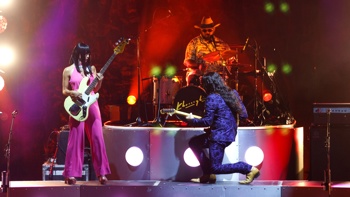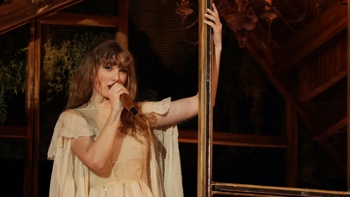
On a cool evening in November 2012, a Russian exile named Alexander Perepilichnyy sets out from his US$12 million (NZ$17 million) mansion outside London for his daily jog.
Perepilichnyy is a wealthy man, thanks to a long career as money-launderer to Moscow's elite.
But today he's worried — and with good reason. He's just blown the whistle on his former employers in the Russian mafia.
And now detectives at Scotland Yard have delivered bad news — they've found a detailed dossier on his movements in the home of a notorious Chechen hitman.
Perepilichnyy sets off down the quiet country lane at a steady pace. He's 44, and in good shape.
There's no one about — St Georges Hill, in Surrey, is a high-security, gated estate where celebrities and bankers pay to live in seclusion. John Lennon and Ringo Starr once owned houses just down the road.
There are no witnesses to what happens next.
A passing security guard finds the Russian collapsed in the road, trembling and making choking noises. A green-yellow bile is foaming from his mouth.
By the time paramedics arrive, Alexander Perepilichnyy is dead.
In the days that follow, local police will declare it a simple heart attack and stamp the file: Not Suspicious.
Others aren't so sure.
"It looks to me like murder," says Bill Browder, the American-born financier who has been described as Vladimir Putin's Enemy Number One. "I believe he was poisoned."
Browder has good cause to be suspicious.
Alexander Perepelichnyy was his key informant in exposing Russia's biggest-ever tax fraud. The allegations were explosive: that senior Kremlin officials and Russian gangsters had corruptly conspired to rob the state treasury of US$230m (NZ$338m), then laundered the proceeds in a series of complex transactions that would ultimately involve all of Australia's major banks.
Two years earlier, Perepilichnyy had confessed that he was the middleman who organised some of the payments. In a secret meeting at the exclusive Westbury Hotel in Mayfair, Mr Perepilichnyy handed Bill Browder crucial evidence — bank records, company documents, flowcharts.
The documents showed the stolen money was sent out of Russia through a maze of shell companies, into Swiss bank accounts or "washed" through legitimate banks around the world — including Australia, as the Seven Network's Sunday Night programme revealed last night.
"This was a very sophisticated, high-level Russian mafia money laundering operation that touches Australia," said Browder.
Alexander Perepilichynny seems to have realised he would be signing his own death warrant by ratting on his mafia mates.
In the weeks before his death, he took out life insurance policies worth US$7m and had applied for others worth US$15m.
A dozen other Russians have met mysterious deaths in Britain in recent years — with suicide and poisoning topping the list.
/arc-anglerfish-syd-prod-nzme.s3.amazonaws.com/public/VEKEPJHU6NCLNLNAKPDEKJM7FM.jpg)
The threat of assassination is a weight Bill Browder knows well.
His firm, Hermitage Capital Investments, was once the largest foreign investor in Russia, with US$4 billion in funds.
But Browder was expelled from the country in 2005 after speaking out against corruption.
His Moscow offices were raided by police who beat up staff and took away boxes of documents, including company seals and tax certificates.
In 2007, two Russian gangsters walked into Moscow Tax Office 28 with those same documents, falsely claiming to own Mr Browder's local companies — and demanded a $230m tax refund.
The obliging head of the department, Olga Stepanova, wrote out a cheque for the entire amount within 24 hours.
Mr Browder — now based in London — hired an up-and-coming young Moscow lawyer, Sergei Magnitsky, to find out what had happened to the money.
Mr Magnitsky wasn't bowed by the prospect of going after powerful vested interests — no small matter in what has been described as a "mafia state".
He quickly found evidence that the police who conducted the raid on Mr Browder's office were involved in the tax fraud.
The intrepid lawyer went before the State Investigative Committee — Russia's version of the FBI — and testified against the corrupt police. Five weeks later the same police came to his home and arrested him.
Mr Magnitsky was thrown into jail and held for months in appalling conditions in a freezing cell. He was offered only one way out: sign a false confession that he had stolen the $230m on instruction from Mr Browder.
He refused to sign.
"They were sure that this guy would buckle within a week," Mr Browder says.
"They totally underestimated Sergei Magnitsky. For him, the idea of perjuring himself and bearing false witness was much more painful than the physical pain he was suffering."
After six months confinement in increasingly squalid conditions, Mr Magnitsky's health completely broke down.
But instead of being sent to hospital, the young lawyer was taken to an isolation cell, chained to a cot and beaten with batons.
He died that night.
"It was the worst, most horrifying, life-changing, soul-destroying news I could have ever gotten," says Mr Browder.
"Sergei Magnitsky would still be alive today if he hadn't been my lawyer.
It was obvious I only had one choice, which was to put aside everything else I was doing and go after the people who killed him and made sure they faced justice."
Mr Browder set out to follow the money trail — but the cover-up was already well underway.
Russia's Interior Ministry announced there were no more records related to the tax fraud because the truck carrying the documents had blown up.
"It's the kind of thing you could ask a kindergartener to come up with — the dog ate my homework, the truck exploded," says Mr Browder.
The breakthrough came in a message from a man who called himself Alessandro Sanchez and wanted to meet at the Westbury Hotel.
Alessandro Sanchez turned out to be Russian money-launderer Alexander Perepilichnyy — and he brought with him a briefcase stuffed with documents.
Mr Perepilichnyy had helped corrupt tax official Olga Stepanova and her husband set up secret Swiss bank accounts.
Ms Stepanova had done very well for a mid-ranking public servant: a $20 million house in Moscow, a $4 million luxury villa in Dubai, another in Montenegro and $11m in cash in a Credit Suisse account in Zurich. Quite an achievement on a $38,000 a year public servant's salary.
But Olga Stepanova wasn't arrested. She was promoted.
Her boss, Russian president Vladimir Putin, announced he knew exactly who had committed the crime.
"What lies underneath these events?", Mr Putin told a press conference.
"Underneath are the criminal activities of an entire gang led by one particular man — Browder is his name."
Mr Browder was undeterred.
Alexander Perepilchny had delivered him a treasure trove that would ultimately show a money trail leading to every one of Australia's biggest banks.
The mysterious death of the Russian money-launderer on an English country lane only made Mr Browder more determined to bring down the crime syndicate.
Mr Perepilichnyy's documents became the basis for a criminal investigation by Swiss prosecutors. In the US, money invested in property in New York was targeted by prosecutors under money-laundering laws.
At Mr Browder's urging, US legislators pushed through a new law, the Magnitsky Act, aimed at freezing the assets and restricting the travel of all those linked to the crime.
Britain and Canada quickly followed suit. Australia has thus far resisted all calls to take similar action.
But Mr Browder isn't about to let Australia off the hook.
Browder's Hermitage Capital has now filed a crime report with the Australian Federal Police and AUSTRAC, Australia's money-laundering authority, requesting that a series of suspicious transactions involving Australian banks and companies be investigated.
Detailed bank records reveal a total of US$3,472,098 (A$4.7m) in payments to 11 Australian accounts from foreign accounts suspected to have received the co-mingled proceeds of the US$230 million Russian treasury fraud.
All of Australia's major banks, including ANZ, Commonwealth, Westpac, NAB and HSBC received funds.
The recipients ranged from individuals to large companies, including sheepskin exporters, aluminium manufacturers and a firm specialising in travel to Russia.
/arc-anglerfish-syd-prod-nzme.s3.amazonaws.com/public/VXRV26TSQZFOVAU2NPP523HVQQ.jpg)
In one case, almost $1.2m was sent to an Australian company from the Estonian bank account of two other companies.
It appears the recipients of the money were innocent parties to the money laundering scheme. Many of the Australian companies involved have since gone out of business. Those still operating say they had no suspicions about the source of the money.
But Mr Browder believes the banks should have better procedures.
"Basically, nobody was asking any questions," he says.
Those banks which responded before deadline declined to comment on the specific transactions put to them, but stated that they took their anti-money laundering obligations seriously and would assist authorities in any investigation.
Mr Browder is now pushing Australian legislators to pass a Magnitsky Act here, so that those involved in the killing of Sergei Magnitsky and other human rights abuses can never enjoy the spoils of their crime on Australian soil.
None have ever been brought to justice in Russia. Indeed, most of the officials involved in the arrest and death of Sergei Magnitsky have been exonerated — some even promoted.
Three years after Sergei Magnitsky was killed, the Russian Government did hold a trial.
But the courtroom cage was empty, because the man on trial was Sergei Magnitsky.
It was the first ever trial of a dead man in Russia's history, according to Mr Browder, who was also put on trial in absentia.
Unsurprisingly, both men were found guilty. There wasn't much more that the court could do to Mr Magnitsky, but Mr Browder was sentenced to nine years' imprisonment in his absence.
Since then, Russian authorities have tried relentlessly to have Mr Browder arrested and extradited whenever he travels abroad from Britain.
They almost succeeded earlier this year, when Spanish police detained him on a Russian Interpol arrest warrant during a visit to Madrid.
If not for the prompt intervention of the British Government, Mr Browder might well have found himself handcuffed on a flight to Moscow.
But Mr Browder has no intention of giving up the fight that has consumed the last 10 years of his life: "When you enter into a fight with Vladimir Putin, there is no walking away."
Matt Doran is a senior reporter and Stephen Rice is a senior producer with Seven's Sunday Night programme.
Take your Radio, Podcasts and Music with you









